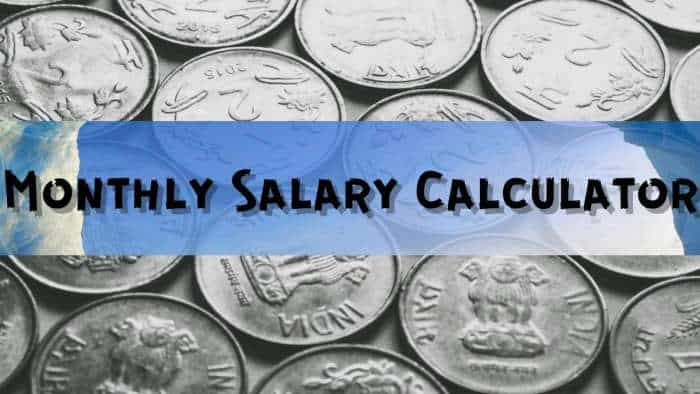What are the benefits of having permanent residency in Germany?
While a permanent resident of any country might enjoy various benefits as compared to a temporary foreign worker, permanent residence is not the same thing as citizenship.

By permanent residency is meant the right to remain in a country for an unspecified period of time.
While a permanent resident of any country might enjoy various benefits as compared to a temporary foreign worker, permanent residence is not the same thing as citizenship.
See Zee Business Live TV Streaming Below:
Germany's Niederlassungserlaubnis — a German Permanent Residence Permit, also referred to as Settlement Permit – might be issued to non-EU citizens that had lived in Germany for over 5 years.
In certain situations, an individual can gain a German permanent residence permit in only 2 years. In order to be eligible, the foreign national must have graduated from a German university and then lived as well as worked in Germany.
Those married to German citizens might be able to apply for a German permanent residence permit after 3 years of living in the country.
While a Niederlassungserlaubnis might not be same thing as deutsche Staatsangehörigkeit [German citizenship], it does offer more security than an Aufenthaltserlaubnis [Temporary Residence Permit].
Those in Germany from the EU or EEA are not required to apply for Germany PR as they already have the right to live and work in Germany.
There are many benefits of taking up permanent residence in Germany.
A settled permit for Germany opens up many doors for an individual.
Top 7 Benefits of having German permanent residency
1. No extension needed
On receiving German PR, an individual can live in the country for an unlimited period of time, without there being any requirement for seeking an extension of their status in the country.
2. Freedom of movement in the EU/EEA
With a German permanent residence permit, an individual can move freely between Germany and the other EA/EEA countries.
3. Eligibility for German citizenship
Those not German by birth might be naturalized into German citizens after having legally lived in Germany for a minimum of 8 years.
4. Entitlement for any employment, including self-employment
Those in Germany with a permanent residence permit can work for any employer, in any form of employment. They can also work as self-employed individuals. For a German PR, there will be no restriction of meeting a specific purpose for remaining in Germany or working with a particular employer.
5. Right of family reunification
An individual in Germany on a permanent residence permit might be able to get their family to Germany to live with them.
Those eligible for the family reunification are the spouse/partner or children below 16 years.
6. Permission on education and vocational training
German PR enables the permit holder to start a vocational training, Ausbildung, without an approval from the federal employment agency [Bundesagentur für Arbeit].
7. Guaranteed social security and health insurance
German permanent residents are entitled to social security insurance and health insurance. Social security includes unemployment insurance, accident insurance, long-term care insurance, and sickness benefits.
So, what are the differences and similarities between the EU Blue Card and the Permanent Residency Permit for Germany?
Both the EU Blue Card and the Niederlasssungserlaubnis are German residence permits for Germany, allowing non-EU/EEA citizens to stay in Germany.
While the EU Blue Card allows the holder to live in Germany for somewhat longer period of time, a Germany PR allows the holder to live within the country for probably the remainder of their lives.
One of the main differences between the 2 is that while the EU Blue Card will have to be renewed every 4 years, a German PR status does not require any extension. While the PR card might expire and will have to be accordingly renewed, the title or status of the permit holder in Germany undergoes no change.
Moreover, unlike an EU Blue Card holder, a Germany PR holder is free to change jobs without prior permission for the same. For an EU Blue Card holder, in the first 2 years of employment in Germany, a job change will be possible only within Germany, that too after approval from immigration services.
A Germany PR indeed holds many advantages for the permit holders. Bringing family to Germany, availing social benefits, ease in job-switching are probably some of the most compelling reasons for acquiring permanent residence in Germany.
Get Latest Business News, Stock Market Updates and Videos; Check your tax outgo through Income Tax Calculator and save money through our Personal Finance coverage. Check Business Breaking News Live on Zee Business Twitter and Facebook. Subscribe on YouTube.
RECOMMENDED STORIES

Monthly Pay Calculations: Is your basic salary Rs 24,900, Rs 51,500, Rs 70,000, or Rs 1,01,400? Know what can be your total salary?

Gratuity Calculation: What will be your gratuity on Rs 45,000 last-drawn basic salary for 6 years & 9 months of service?

How investing Rs 1 lakh office bonus for 10 years can bring your Rs 2.77 crore retirement corpus dream to reality

Top 7 SBI Mutual Funds With Highest Returns in 3 Years: Rs 2,00,000 one-time investment in No. 1 fund has sprung to Rs 4,77,000
02:42 PM IST









 India, Germany decide to expand ties in clean energy, mobility sectors
India, Germany decide to expand ties in clean energy, mobility sectors As PM Modi seeks third term, Overseas Friends of BJP Germany organise "Chai Pe Charcha with Modi ka Parivaar"
As PM Modi seeks third term, Overseas Friends of BJP Germany organise "Chai Pe Charcha with Modi ka Parivaar" German wholesale prices fall 3.0% in March
German wholesale prices fall 3.0% in March German business sentiment for automakers improves in March, Ifo says
German business sentiment for automakers improves in March, Ifo says German industry grows in January but car output remains weak
German industry grows in January but car output remains weak